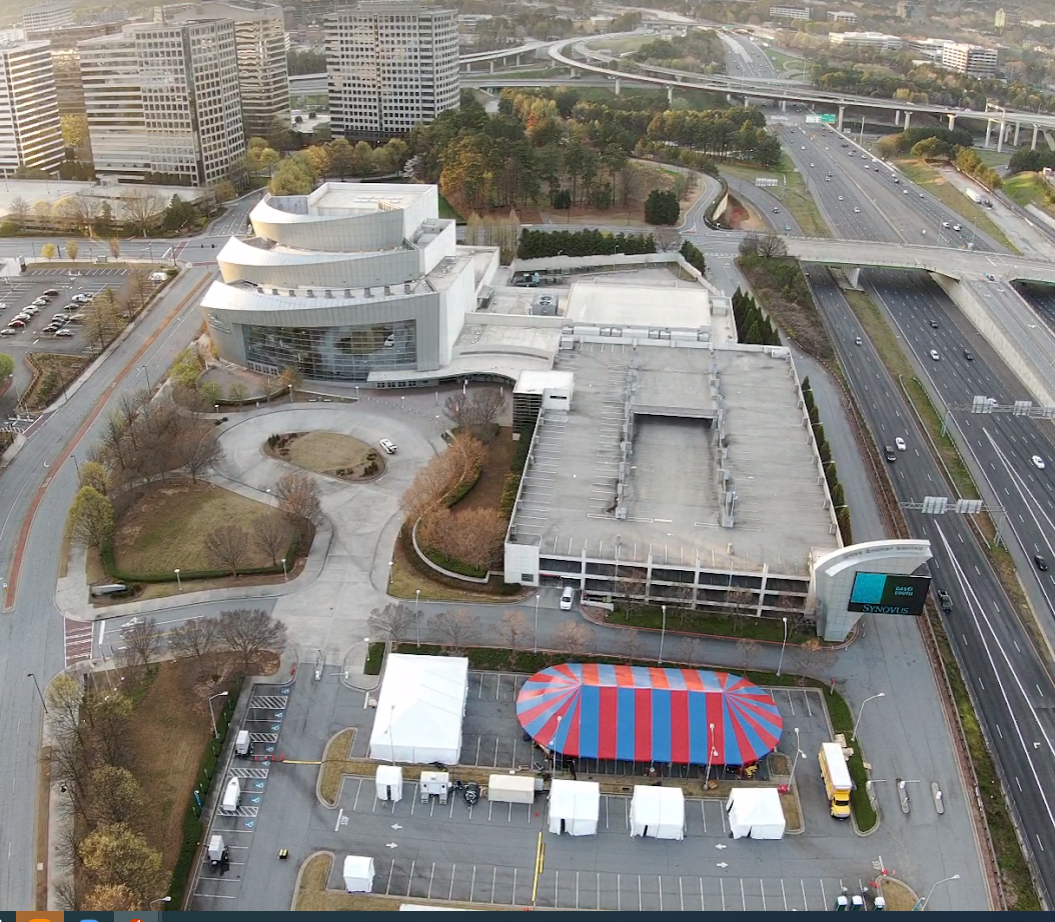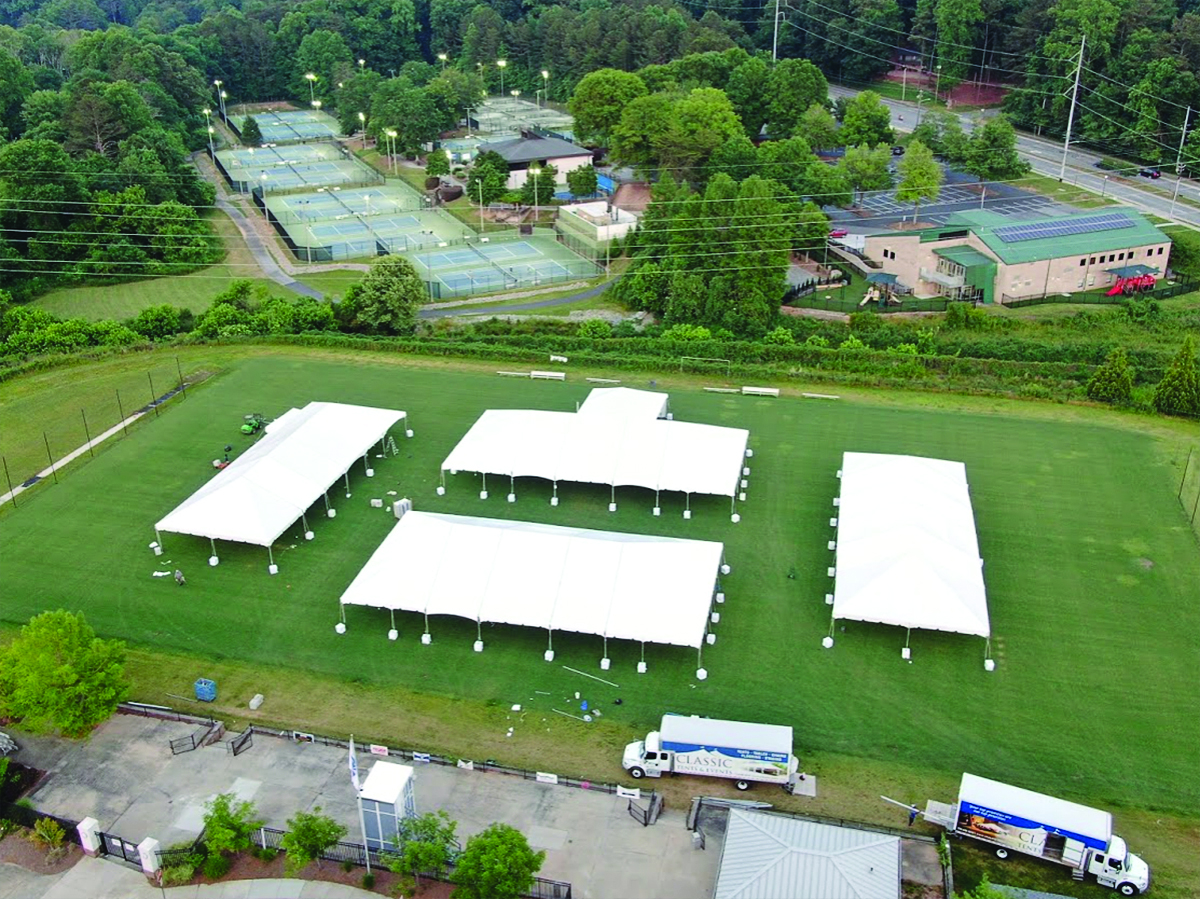As the world continues to adjust, readjust, move forward and recover from coronavirus (COVID-19), tent manufacturers along with the party and event rental industry are seeing high demand for labor, material, products and events.
Manufacturers found ways to compensate against the pandemic’s challenges in 2020, some changing gears and repurposing product lines from tents to making masks, face shields and social distancing signage to meet demands related to COVID-19.
Rental stores and manufacturers saw requests increase in 2020 for smaller-width tents to accommodate restaurants, medical facilities, backyard graduations and more. Some of those adjustments remain, incorporated into rental store lineups on a permanent level.
As the world tries to find normalcy again, a new set of trends for 2021 are emerging as social gatherings pick up, with rental stores and manufacturers moving forward and keeping pace with demand.
Photos courtesy of Classic Tents & Events
 |
 |
“We continue to see similar trends in the social and public events market with smaller-scaled events that are taking very small steps to grow,” says Carlos Mino, vice president, Classic Tents & Events, Norcross, Ga. “We feel that many planners are testing the waters and pushing sizes up little by little. We have worked on catering to our clients and support them on these new ventures with expanding our smaller size tent inventory along with giving them more options with our accessories inventory.”
Awareness and adaptability are heightened after 2020, and the special event and tent rental community is rebounding, learning and focusing on the future.
“Welcome to the new world,” says Fred Tracy, president, Fred’s Tents and Canopies, Waterford, N.Y. “We made it through these difficult times. I believe our industry is in a good position in both manufacturing and the rental segment for many years to come. The market for outdoor events will continue to grow and evolve.”
Photo courtesy of Rainier Industries
 |
Michael Tharpe and Larry Ott, sales, Rainier Industries, Tukwila, Wash., agree. Both say social events are coming back strong, adding that concerts, fairs and festivals are being held in increasing numbers, creating a higher demand for event-related products.
Some of the key trends and issues both manufacturers and party and event rental stores are experiencing so far in 2021 include:
Labor and raw material. Labor, or the lack of it, is one of the major challenges facing the party and event industry, and much of the U.S., along with global demand for raw materials. Tracy says the industry lost approximately 2,000 to 3,000 qualified installers in 2020 due to the pandemic.
“I expect it to take two to three years for rental companies to build back the inventory of experienced, qualified installers like pre-COVID times,” Tracy says.
Scott Sutherland, president, Olympic Tent, Tacoma, Wash., agrees. “Finding employees has been the No. 1 issue for rental clients,” Sutherland says. “We have been able to double our manufacturing staff to keep up with demand, and I consider that a blessing.”
Sutherland says it’s very challenging for suppliers to suddenly pivot to meet the surge in demand.
“For example, our aluminum orders are up over 600 percent, but the supplier may actually face a diminished capacity due to labor shortages,” Sutherland explains. “They would also struggle to find materials because the demand came so fast and unexpected that their blanket orders for raw materials — established for projections for months into the future — were far below what they expected from their customers.”
Photo courtesy of Olympic Tent
 |
Customer demand, inventories and lead times. There is a continuing demand for smaller and mid-sized tent products and accessories, items that were used heavily during the pandemic and also used for long-term applications, according to Alex Kouzmanoff, CERP, president, Aztec Tents, Torrance, Calif.
“Some products continue to be used even as the effects of the pandemic lessen,” Kouzmanoff says. “There is a high demand for replacement products in this segment. We have also seen many tent rental companies deplete their smaller tent inventory with either sales or long-term rentals for pandemic-related work. As they replace these products, most are taking the opportunity to upgrade into newer technology with designs that are better prepared for the times ahead. Namely, labor savings and strength to meet engineering requirements.”
Kouzmanoff says Aztec is seeing unprecedented demand for the company’s products that has stretched since last summer with the company having little to no down time to rebuild and replenish stock.
Photo courtesy of TopTec Event Tents
 |
Bryan Bolt, technical solutions manager, TopTec Event Tents, Moore, S.C., and an American Rental Association (ARA) associate member director, says 2021 customers also seem to be getting back to larger tents, such as the 40- to 50-ft.-width frames and 40-ft.-width pole tents.
“Smaller tents are still trending over years past, but we are seeing increasing demand for tents that accommodate larger groups of people,” Bolt says. “We know some of that is due to spacing requirements creating needs for larger tents, but some is certainly attributed to larger gatherings than those seen in 2020.”
Nate Brancato, president, Liri Tent US, Kansas City, Kan., says his company has experienced growth in a number of tent options.
Brancato says some of his company’s newest and unique items include Liri’s Orangery structure, which was installed for long-term expansion at the Chateau Avalon Hotel in Kansas City to meet the need for an expanded event space. The company also has launched Liri’s Star Tent, which offers flexible connection of multiple adjacent tents to expand to the desired number of “stars.” The tent can be open air or closed with all Liri accessories.
Photos courtesy of Liri Tent US
 |
 |
Brancato adds that more glass materials for doors and walls have been in demand to better replicate internal space during the past year.
Keith Krzeminski, executive vice president, Shelter Structures America, Salem, Va., a distributor of large tent structures in the U.S., Canada and Mexico, says newer designs, such as Jet tents and Arcum tents, are becoming very popular.
“You can see this weekly at golf events around the country,” Krzeminski says. “We are seeing our strongest trend for our M-Series tents — 15m to 25m — as tent rental companies expand due to the pent-up market.”
Krzeminski says other 2021 option trends include glamping tents added to a wedding package as another item for tent rental companies to increase revenue and profit, “or used for concerts as sleeping or event tents.”
Safety. Kouzmanoff says there continues to be a trend for rental companies to ditch older, obsolete inventories to invest in products that meet engineering requirements. Mino says Classic Tents & Events is continuing to “push our clients to move to more secure ballasting such as cement blocks. We have increased our blocks inventory by 250 percent.”
Sutherland says he has noticed an uptick in awareness of safety issues over the last four or five years along with greater efforts of the industry associations to improve tent safety.
“There is still much work to be done, having seen some scary examples of total disregard for safety,” Sutherland says. “I’d like to think that those sets are from the DIY crowd, but I’m sure there are some ‘professionals’ that have yet to be properly educated or simply choose to ignore it.”
Bolt says advancement in equipment is allowing for efficient anchoring of the tents in both stake driving and removal and in mechanization of ballast handling.
Long-term rentals versus one-time events. “Many of our clients have mastered this,” Sutherland says. “It’s the first topic we discuss when we are designing the tent configuration, and most of our clients know exactly what they need ahead of time. Newer clients have more questions about this topic, by far, but they are rapidly becoming seasoned veterans, too.”
Sutherland says, for example, a client may prefer tents with 20-ft. bays or leg spacing for normal inventory, but they will ask for 10-ft. or 15-ft. bays and extra roof cables when it’s for a long-term rental. Discussions may involve fabric upgrades.
Kouzmanoff says the direction most rental companies are going pushes a mixture of products designed for different applications.
“Fairs and festivals might use one segment of products, weddings and social events might use a different segment of products and, finally, larger projects and industrial applications might use an entirely different segment of products for those applications,” Kouzmanoff says.